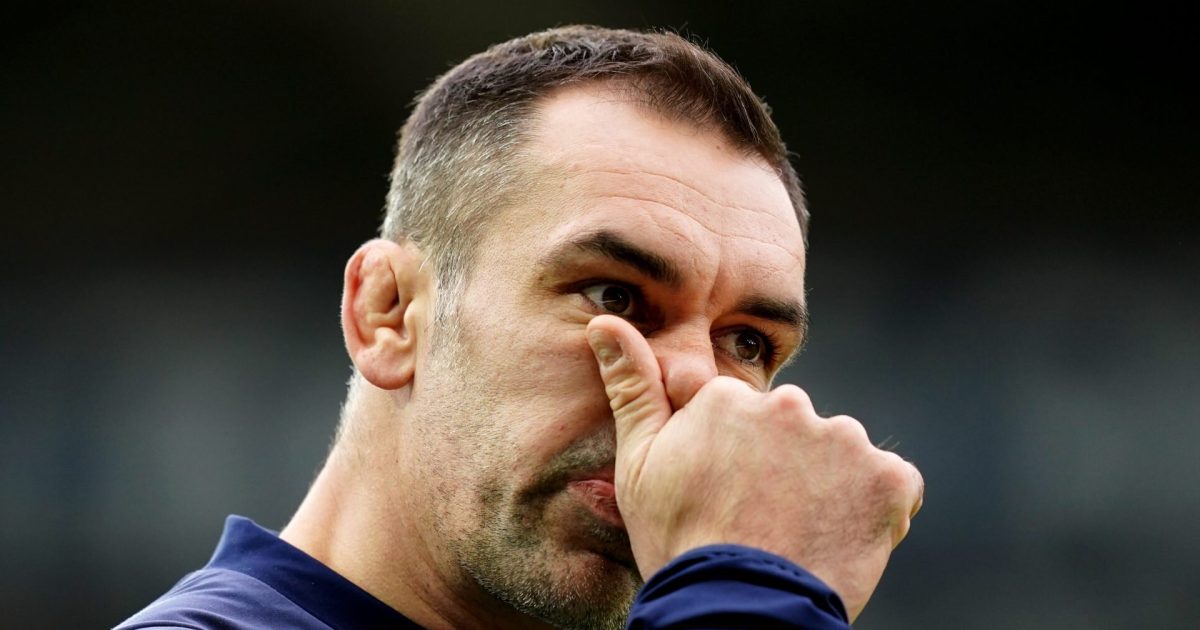Sale boss Alex Sanderson supports the 20-minute red card rule in the belief it would help police the grey area that has emerged through inconsistent refereeing. World Rugby is considering extending the law trial currently in place in Super Rugby to other competitions in order to gather more data on its impact on matches.
The rule allows for a sent-off player to be tactically replaced by a substitute after 20 minutes, therefore preventing early dismissals from ruining games. It comes amid an increase in red cards as World Rugby looks to stamp out dangerous play, particularly high tackles involving contact with the head.
The experimental law divides opinion, but Sanderson believes it provides a valuable compromise position. “What we have seen is an inconsistency to what conjugates a red card and what the sanction of a red card is,” Sanderson said.
“I believe that’s a good thing because getting a red card changes the game irrevocably. It has to change because now it’s probably a bit too harsh. Referees don’t want to be the person who dictates the outcome of the game, but increasingly so they are becoming that.
“I understand why they have shifted away from certain things, mitigating factors, affecting the decision for red cards, but there is still a lot of grey there between a yellow and a red. A 20-minute sanction would affect the game hugely, but not irrevocably, so I think it’s probably a good idea. A 20-minute red card gives you an ability to punish grey areas more than the straight black and white of a yellow or red card.”
Sale are losing both of their marquee players when Faf de Klerk and Lood de Jager depart at the end of the season, but Sanderson still approves of the decision made by clubs that from the 2022/23 campaign, only one wage can be counted outside the reduced £5million salary cap. It is hoped that cutting the cost of running a squad in the Gallagher Premiership will mitigate the financial fallout from the coronavirus pandemic.
“You lose the experience, the talent and potentially a bit of x-factor with the marquee player, but you gain the opportunity for good young English players,” Sanderson said. “The pathway opens up to lads who could have been blocked before. The aim is to make the game a viable, self-supporting business as opposed to a folly of rich philanthropists, which it has been.
“The long-term benefits of saving the game and giving the opportunity to young English players definitely outweighs the short-term benefits of having some galacticos on the field.”

























